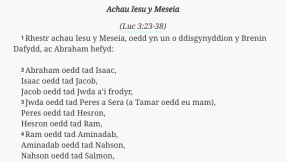More than 100 Iranian Christians and other refugees have been denied asylum in the US by the Trump administration.
The refugees have awaited asylum acceptance in the US for more than a year, having been based in Vienna in the meantime, according to Foreign Policy.
Mainly Christians and other non-Muslim individuals, they had applied for visas under the Lautenberg Amendment, US legislation established to protect endangered religious minorities. Refugee cases under this amendment processed before Trump entered office reportedly had a success rate of nearly 100 per cent. The US State Department said in a statement to FP: 'These individuals were subject to the same rigorous process for resettlement as all refugees and, following input from all relevant departments and agencies, the applications for resettlement were denied.'
However, Hans Van de Weerd, vice president of US programs at the International Rescue Committee, said: 'The hypocrisy of this administration has no boundaries. It criticizes the Iranian regime, encouraged the protests, but refuses to provide safety to those who flee and are not safe from the Iranian government.'
Van de Weerd said: 'The Iranians in Vienna are in desperate circumstances. Without income or the right to stay in Austria, they have but no choice to be deported to Iran, unless another nation steps up or Austria grants them asylum.'
The State Department spokesperson said that 'The United States will not force anyone to return to Iran,' but religious freedom advocates say such a deportation is the most likely next step and could result in severe punishment for those who once fled the country.
World Relief, one of America's largest refugee resettlement agencies, last month damned Trump's travel ban on refugees as a 'net loss' for the US that hurt persecuted Christians, a group Trump had previously promised to protect.
The constitution of Iran, a majority-Muslim country, offers some religious freedom rights for recognised sects of Islam along with Christians and Jews. But evangelical Christians and other faith groups face persecution for violating bans on proselytising. People from religious minorities have in recent years been imprisoned in harsh conditions for committing 'enmity against God' and spreading 'anti-Islamic propaganda'.
Austria meanwhile is renowned for its draconian treatment of immigrants. According to the Global Detention Project, 'Austria has sharply increased the number of people it places in immigration detention after years of declining detainee populations. While it continues the controversial practice of placing immigration detainees in "Police Detention Centres", the country opened a new dedicated immigration detention centre in 2014, which is partly operated by the multinational security company G4S. The country has also announced plans to significantly boost removals, focusing mainly on people from the Middle East and sub-Saharan Africa.'













